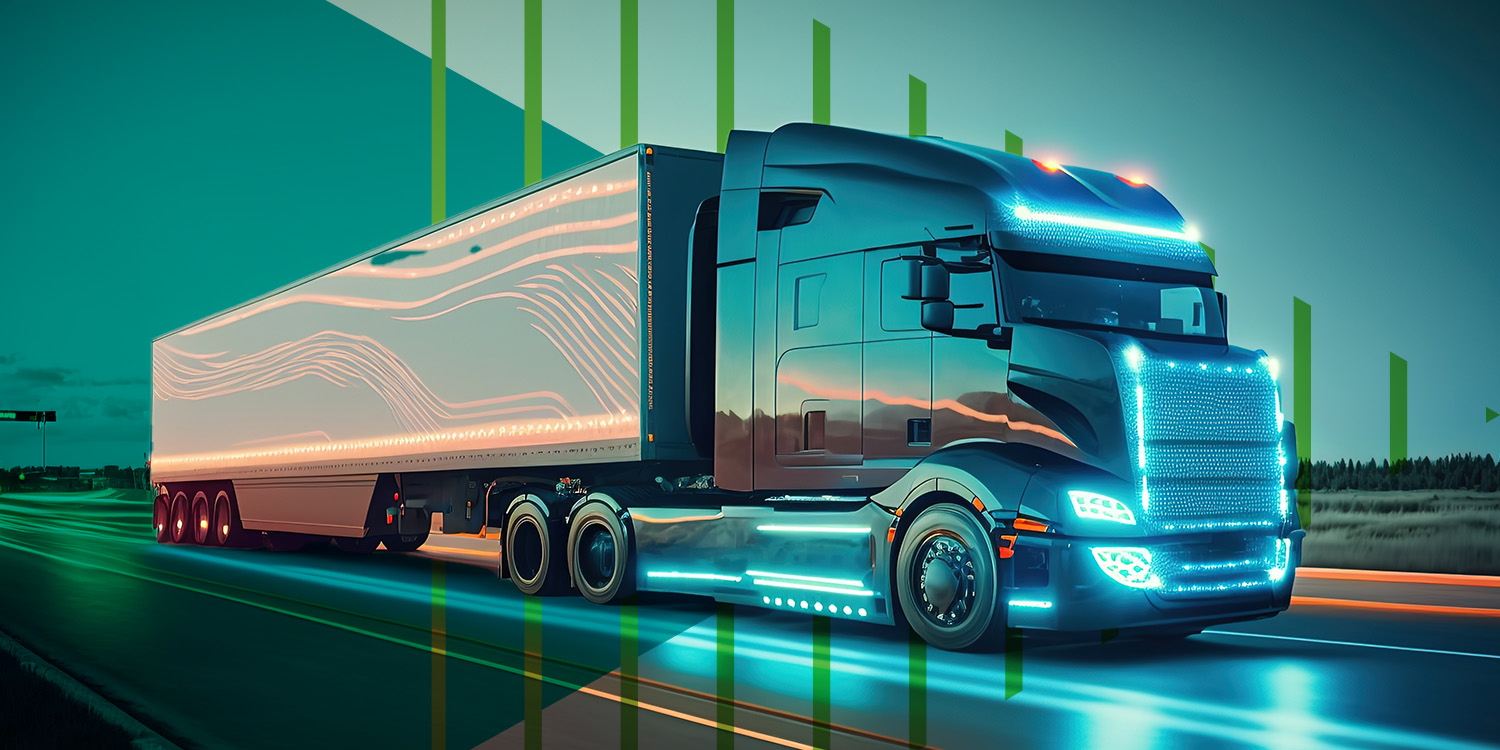Historically, commercial auto carriers and the commercial trucking industry have lagged in adopting technology compared to other sectors of the economy. However, the tides are turning as insurance carriers, insurtech startups, and commercial trucking fleets adopt telematics programs to enable driver performance monitoring, enhance safety, and improve profitability.
In 2021, the commercial auto segment had a profitable year as the net combined ratio hit 98.8%. Integrated telematics solutions have the potential to lower commercial auto combined ratios by reducing accident frequency and severity via driver behavior management and selection. Over the past decade, many insurance companies’ telematics programs captured driver behavior or mileage data from dongles plugged into a vehicle’s onboard diagnostic (OBD) port or from an insured’s mobile phone. As auto OEMs produce vehicles equipped with more sensors and electric batteries, insurance companies and startups can harness real-time data directly from the vehicles to design innovative, software-driven telematics programs for their commercial auto insureds.
Trends driving telematics adoption in commercial auto
Several trends are driving the adoption of telematic programs across the commercial auto industry. Government mandates focused on net-zero emissions by 2050 are driving auto manufacturers to produce more EVs, and commercial fleets are beginning to retool their fleets from ICE to electric. In 2021, FedEx received its first order of all-electric, light-duty vehicles from BrightDrop, General Motors’ new subsidiary focused on electric solutions for first- and last-mile delivery. The rise of connected, electric fleets also will necessitate the need to capture telematics data. Ford Pro Charging Product Marketing Manager Wes Crouch noted, “Fleets need telematics data to understand how often electric vehicles are on the road, when they are or are not moving, how often they are shut off and turned on, and how much energy is being used with driving functions. (This) informs when and to what extent a vehicle needs to be charged and preconditioned.”
Within the insurance industry, the rising frequency of accidents on the roads and the higher cost of claims are among the factors driving carriers and startups to adopt telematics programs. These programs can enable fleet owners or risk control teams to monitor truck drivers’ behaviors in real-time and provide coaching to optimize safety on the roads. The data transmitted from telematics systems, such as vehicle location, harsh braking, and rapid acceleration, enables fleet owners and insurers to mitigate risks and reduce losses. Although nascent today, the adoption of commercial EVs, with their sensor arrays feeding telematics programs, may prove pivotal to improving future commercial auto insurance loss ratios.
Startups and carriers innovating in commercial trucking telematics
Over the past five years, many insurtechs have entered the market to serve commercial trucking fleets.
Beyond selling insurance products such as auto liability, these insurtechs offer telematics programs to their insureds. Cover Whale, a New York-based Managing General Agent (MGA) founded in 2019, currently serves the Class 7-8 owner-operators segment of the market and offers it’s insureds tailored telematics programs. Cover Whale sends artificial intelligence (AI)-powered dash cameras and provides a driver coaching program to its insureds. This approach has improved driver safety practices among its insureds and is a profitable book with loss ratios under 60%. Cover Whale CEO Dan Abrahamsen stated, “Cameras are an indispensable part of our Driver Safety Program that not only help us improve safety measures and save drivers money but also empower our policyholders to make safe driving a core part of their day-to-day.”
Other mobility startups such as Avanta Ventures-backed Motorq are leading the way in capturing connected vehicle data for use in commercial telematics programs. Motorq has direct connected-vehicle data integrations with 12 auto OEMs and leading EV brands such as Tesla, GM, Ford, Hyundai, and Volkswagen. Motorq’s unique data sourcing and normalization capabilities could enable commercial auto carriers to design innovative telematics programs for their trucking insureds that avoid using traditional factors such as drivers’ credit scores.
Carriers innovating in commercial trucking telematics
Many carriers aim to design innovative commercial telematics programs to underwrite more effectively and bolster profitability. Commercial trucking insureds, from owner-operators to large fleet operators, also are willing to employ telematics programs to improve fleet safety via driver safety programs and reduce costs on their insurance premiums.
Carriers like Progressive are leveraging learnings from their personal lines’ telematics programs to develop programs for their commercial auto insureds. They likely will pull insights from operationalizing their personal lines’ telematics programs – selecting vendor partners, filing with departments of insurance, establishing underwriting guidelines, marketing the program, and more – to create equally robust commercial telematics programs. In 2018, Progressive launched its first commercial telematics program, Smart Haul, which accessed data from truckers’ electronic logging devices (ELD) to generate a usage-based insurance (UBI) score. As telematics programs continue to evolve, innovative insurers may also aim to offer their insureds more than premium discounts. Over time, value-added services such as emergency response or automatic first notice of loss (FNOL) reporting may be adopted.
What’s in store for the future?
Carriers with commercial auto books have a unique opportunity to embrace innovative telematics solutions to restore profitability and improve safety outcomes for their insureds by mitigating driver behavior-based risks. Innovative insurtechs are adopting a telematics-first approach to mitigate losses and bolster safety cultures among commercial trucking insureds.




